
The 2010s saw a renaissance of the Western genre, with filmmakers pushing its boundaries and offering a diverse range of stories. These weren’t the formulaic shootouts or heroic cowboys that audiences had come to expect.
Instead, the decade introduced Westerns that were gritty, introspective, and daring—sometimes blending genres, other times reinventing the conventions of the form. If you missed them, it’s time to take another look. These films aren’t just entertaining—they’ll make you rethink the possibilities of the Western genre itself.
1. Mystery Road (2013)

When you think of the Outback, you probably envision vast deserts and rugged terrain. What Mystery Road brings to the table, however, is a chillingly atmospheric portrayal of isolation and corruption, grounded in the stark beauty of Australia’s landscape. This is a neo-Western in every sense of the word, a slow-burning thriller that examines racial tensions, societal decay, and the kind of raw human emotion that is often absent in more action-packed Westerns.
Aaron Pedersen plays Jay Swan, a detective who returns to his hometown to investigate the murder of a young Indigenous girl. What follows is not just a crime drama, but a rumination on the complexity of identity, the legacy of colonialism, and the moral compromises people are forced to make when faced with brutal realities.
Pedersen’s quiet, commanding performance is a masterclass in restraint, as he navigates a landscape that’s as hostile to him as it is to the film’s characters. His calm demeanor makes for a chilling and compelling performance, and the film runs at his character’s pace, which makes for extraordinary sense of tension throughout the piece.
The film’s pacing may be slow for some, but every moment is filled with beauty and strain. The vast, unyielding desert that surrounds Swan mirrors the emotional desolation he feels as well as the town itself; and the journey to uncover the truth is one that, while simple on paper, reveals the deep scars left on this society.
If you’re looking for a Western that doesn’t offer easy answers, Mystery Road is a must-see. It’s dark, compelling, and utterly unforgettable, and led to a sequel, Goldstone (2016) as well as producing a television series.
2. The Homesman (2014)
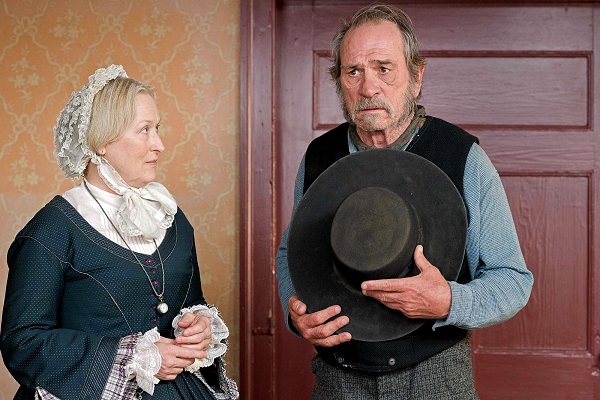
The Homesman may not be your typical Western, but that’s what makes it such an interesting watch. Directed by and starring Tommy Lee Jones, the film deals with depression, madness and sympathy on the frontier. Jones takes on the role of George Briggs, a rugged, self-serving man who is forced to help Mary Bee Cuddy (Hilary Swank) transport three mentally ill women back East.
Jones has previous in this sort of terrain; his debut feature as director was one of the finest films of the 2000’s, The Three Burials of Melquiades Estrada (2005); a humane, emotionally engaging Western work whose influence is far from absent in The Homesman.
The film is a meditation on survival, not just in the physical sense, but on a psychological and emotional level. Mary Bee Cuddy is not the typical “strong woman” seen in many Westerns; she frequently succumbs to vulnerability and doubt, and Swank’s portrayal is brilliant. She depicts a woman who, despite being tough and independent, is also deeply scarred by the hardships of pioneer life. Her quiet desperation is palpable, and it makes her moments of emotional breakdown all the more harrowing, yet also moving.
Jones creates a mood that is equal parts desolate and beautiful. The landscape of the frontier is both a threat and a reflection of the characters’ inner turmoil, and the sweeping vistas remain gorgeous even when they’re at their most bleak. This isn’t a Western about gunfights and heroic acts; it’s a film about strength and survival.
The Homesman is proof of Tommy Lee Jones’ expertise in the genre, both in front of and behind the camera, helped no end by a brilliant display from Hilary Swank.
3. Bone Tomahawk (2015)
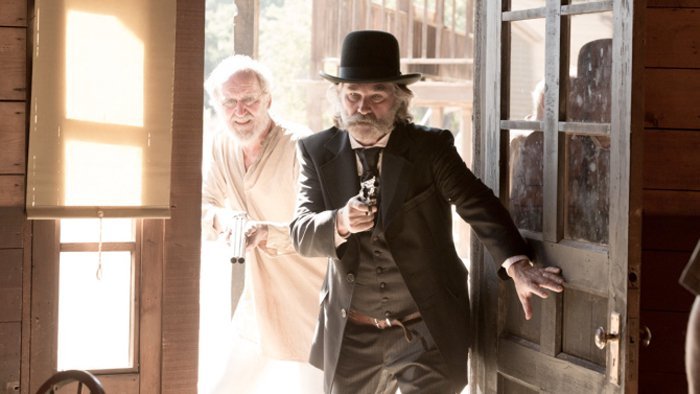
If you want a Western that doesn’t shy away from brutality and throws in a welcome helping of horror, then Bone Tomahawk is your film. Directed by S. Craig Zahler, this is a genre-bending masterpiece that begins as one thing and snowballs into something else entirely, resulting in a film that is both shocking and deeply unsettling.
The plot revolves around a group of men, led by Sheriff Franklin Hunt (Kurt Russell), who must rescue a group of kidnapped townsfolk from a brutal tribe of cannibalistic cave-dwellers.
At first glance, the film may seem like a classic slow-burn Western; we slowly get to know the residents of Bright Hope (the small town of which Russell’s Hunt is the Sheriff), before events conspire to leave Hunt leading a search party into a valley in which the cave-dwellers live.
Zahler takes his time building tension, making the final act all the more horrifying. The violence, when it comes, is unflinching and visceral. It’s not glorified—it’s uncomfortable and raw. Zahler is an expert in delivering this sort of excoriating violence, his subsequent features Brawl in Cell Block 99 (2017) and Dragged Across Concrete (2018) have upped the ante even more in this respect, but Bone Tomahawk was his directorial debut, and it is even more impressive for that fact.
Kurt Russell, who is no stranger to Westerns, delivers one of his finest performances, balancing the grizzled veteran with a welcome depth of vulnerability. The film’s strength lies not just in its gut-wrenching moments of horror, but in its ability to blend genres in a way that feels both natural and exhilarating. Bone Tomahawk is a film that pushes the boundaries of what Westerns can be—violent, disturbing, and undeniably brilliant.
4. Slow West (2015)
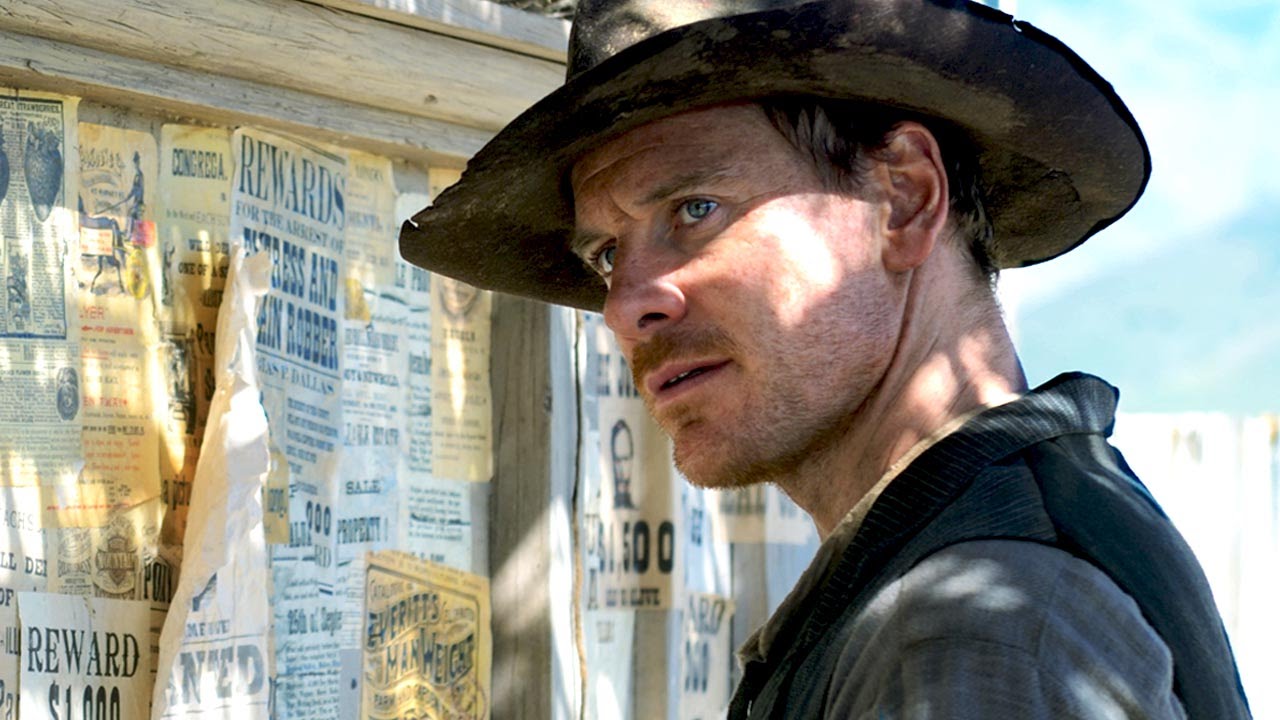
Slow West is a Western for those who prefer their films quirky, offbeat, and unpredictable. Directed by John Maclean, the film follows Jay (Kodi Smit-McPhee), a naïve Scottish teenager who journeys across the American frontier in search of his lost love. Along the way, he’s joined by a mysterious bounty hunter, terrifically played by Michael Fassbender, (as you’d expect) who seems to have his own agenda.
The film’s pacing is deliberate, but it’s a journey that rewards the patient viewer. Slow West combines dark humor with moments of sudden violence, and the way it balances these elements is truly impressive. Maclean brings a sense of surrealism to the Western genre, with beautifully shot landscapes and a tone that flits between light heartedness and deadly seriousness.
There are moments of tension, but Slow West is never afraid to surprise you. It’s a Western that isn’t bound by the typical tropes of the genre, offering something fresh and surprising at every turn. The showdown at the film’s conclusion is a masterclass in in tension building, and leaves you questioning everything you had previously thought about the characters, enhancing the film still further.
Slow West might be a particularly unconventional Western, but it’s all the better for it.
5. Meek’s Cutoff (2015)
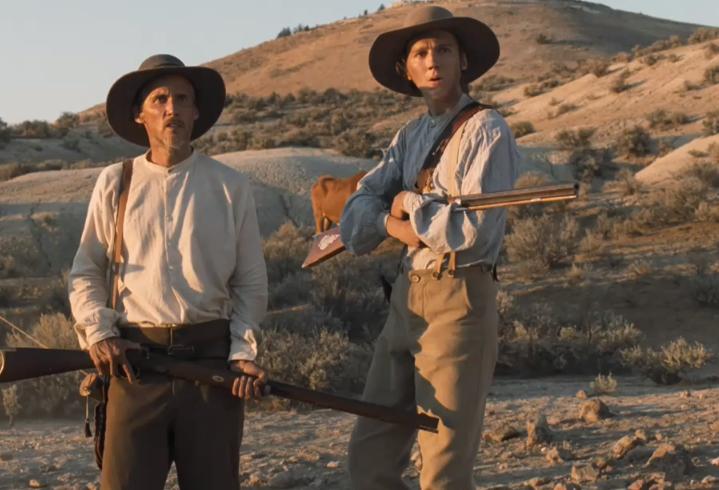
Kelly Reichardt’s Meek’s Cutoff is a quiet, unsettling film about the fragility of hope and the stark ruthlessness of nature. Set in the 1840s, the film follows a group of pioneers who are desperately trying to cross the Oregon Desert. Led by the unreliable, bizarre, and possibly dangerous Stephen Meek (Bruce Greenwood), the group becomes lost, despite Meek’s constant denial of the fact, and their situation grows increasingly dire as they struggle to survive.
Reichardt’s minimalist approach to storytelling is what sets Meek’s Cutoff apart. The film’s pacing is slow, deliberate, and deeply atmospheric. The desert landscape is both a character and a force that looms over the pioneers, threatening their very survival. Unlike many Westerns, which sometimes romantisice the idea of the frontier, Meek’s Cutoff offers a brutally realistic portrayal of the harsh realities of pioneer life. The film is full of tension, despite scant action taking place before your eyes; but this results in the smaller things having a much bigger impact than you might otherwise expect.
Michelle Williams’ is terrific as Emily, a woman caught in the middle of a dire situation, unsure whether to trust the men around her or take matters into her own hands. The film’s conclusion is almost Lynchian with wide options for interpretation, leaving you with a lingering sense of unease. Meek’s Cutoff requires patience, but its contemplative nature makes it a rewarding experience for those willing to sit with it, not to mention that it’s a mere ninety minutes long.
6. The Salvation (2015)
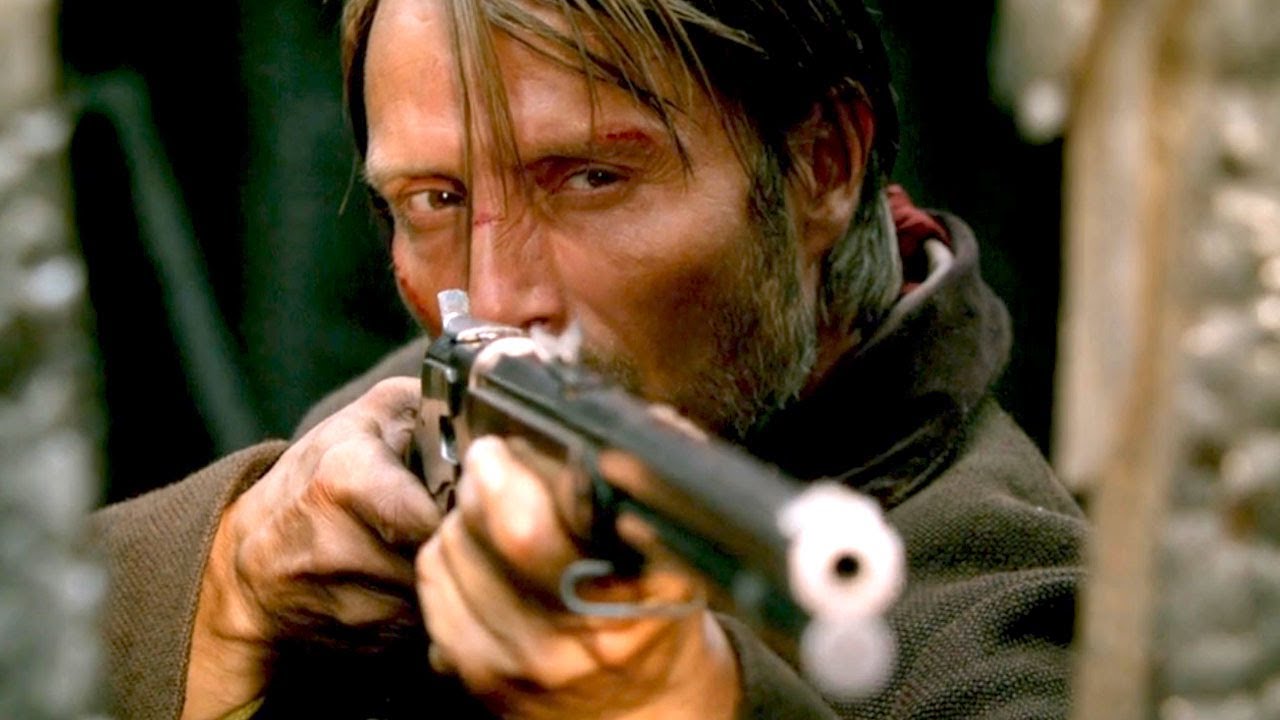
The Salvation is a more straightforward revenge Western, but it’s one that’s elevated by its incredible performances and stunning cinematography. Set in the late 1800s, the film stars the brilliant Mads Mikkelsen as Jon, a Danish immigrant who arrives in the American West with his family, only to have them brutally murdered by a gang of outlaws. What follows is a relentless pursuit of justice, as Jon goes after the men responsible.
Mikkelsen’s performance is quiet but intense, conveying the strength of a man driven by grief and the need for revenge. We’ve seen this attitude more recently from Mikkelsen in Riders of Justice (2020), but that film’s blend of violence and comedy is not one shared by The Salvation. It’s brutal and unrelenting, although it never feels gratuitous. It’s a film about moral choices, the cost of revenge, and the price people are willing to pay for it. Jeffrey Dean Morgan’s performance as the ruthless gang leader adds a layer of menace, and at times one is reminded of Sergio Leone’s spaghetti Westerns, in particular the Dollars Trilogy (1964-1966).
The film’s landscapes are breathtaking, and the action scenes are tense and well-choreographed. But what truly sets The Salvation apart is how it captures the raw emotions of its characters. This isn’t a simple tale of good versus evil—it’s an exploration of loss, guilt, and the almost invisible line between justice and flat-out vengeance.
7. In a Valley of Violence (2016)
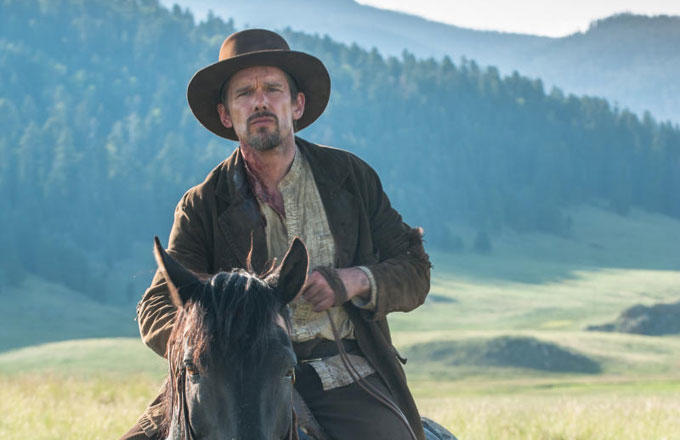
In a Valley of Violence is the best Western nobody talked about in 2016. Directed by horror auteur Ti West (he of X [2022], Pearl [2022] and MaXXXine [2024]) it’s a genre riff that appears to play everything dead straight—until it doesn’t. Ethan Hawke is terrific, as he so frequently is, doing his best Eastwood impression and proving his Western chops that he would latterly bring to the fore in Pedro Almadovar’s short, Strange Way of Life (2023). The result is a tight, stripped-down revenge flick that punches well above its weight.
Hawke is Paul, a drifter with a violent past and a loyal dog. When he rolls into a dusty ghost-town run by a swaggering James Ransone and his conflicted marshal father (John Travolta, rolling back the years), things unravel fast. What follows is a lean, 104-minute shootout in slow motion—part dark comedy, part elegy for a genre that’s always been teetering on the edge of self-parody.
West dials back the horror but keeps the tension; every scene dangles on the brink of violence, and when it comes, it’s swift and brutal. The real surprise is how funny it all is. Not in a wink-to-the-camera way, but with genuine, character-driven absurdity.
In a Valley of Violence might not be the first Western that springs to your mind when you think of the 2010’s—but it’s a damn fine Western. Sharp, smart, and completely unpretentious.
8. Wind River (2017)
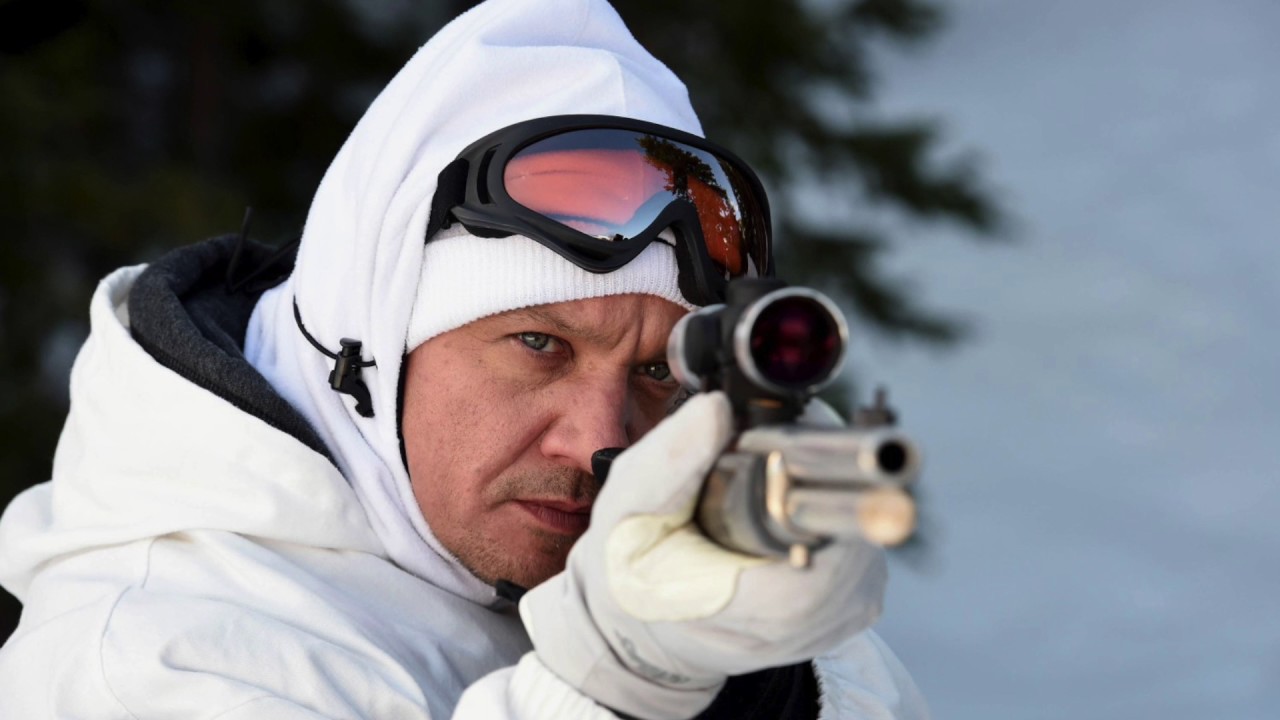
Wind River is one of the most haunting Westerns of the 2010s, with a chilling atmosphere that perfectly complements its hard-hitting social commentary. Written and directed by Taylor Sheridan, the film is set on a Native American reservation in Wyoming, where a veteran tracker (Jeremy Renner) teams up with a rookie FBI agent (Elizabeth Olsen) to solve the murder of a young woman.
Sheridan had already written Sicario (2015) and Hell or High Water (2016) by the time he stepped behind the camera for the first time, so his talent was obvious, and even if Wind River doesn’t quite perhaps hit the heights of those two films, it’s an incredibly impressive directorial debut.
The film excels not only in its tense, procedural narrative but also in how it addresses Western themes of isolation and survival with a modern crime story. The setting—a snow-covered, desolate reservation—becomes a character in itself, with the unforgiving climate reflecting the characters’ inner struggles. Renner and Olsen share a great dynamic, and their performances ground the film with a true sense of realism, meaning that when tragic events occur, they hit much harder.
Sheridan creates a sense of dread that builds steadily throughout the film. At Wind River’s conclusion we’re left with no easy answers but instead difficult questions about the lingering trauma of violence; this is a world away from the light hearted (but superb) Hell or High Water. Wind River leaves a lasting impact, and in terms of feature films, it’s a shame we’ve only seen Sheridan behind the camera once more since.
9. Hostiles (2017)
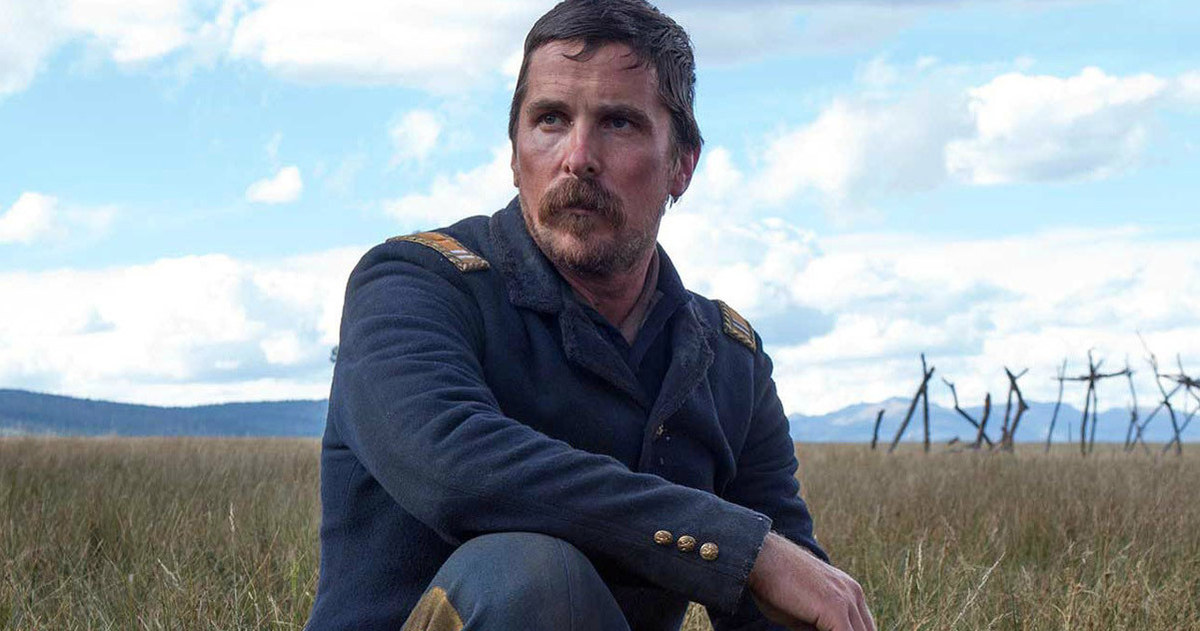
Hostiles is arguably one of the finest Westerns of the 2010’s. Directed by Scott Cooper, it tells the story of Captain Joseph Blocker (Christian Bale), a hardened military officer tasked with escorting a dying Cheyenne chief (Wes Studi) and his family across dangerous terrain to their homeland.
What makes Hostiles so effective is how it explores the moral complexities of its characters, in a time period which was filled with ill-informed prejudice and hatred. Blocker is a man consumed by the horrors he’s seen in his life, but as he embarks on this journey, he begins to confront his own demons. Bale’s performance is without doubt one of his best, as he navigates a character who is both repellent and sympathetic.
Hostiles doesn’t make light of the brutality of the period, but it also highlights the possibility of healing and forgiveness, even in the face of appalling violence; something that Rosamund Pike’s Rosalie Quaid struggles with throughout the film after her entire family are murdered in the opening scene.
Indeed, Pike’s performance is astonishing; slowly intertwining her solace with Blocker’s regimented beliefs after he finds her amongst the ashes of her home, both of them slowly allowing themselves to trust again as they traverse dangerous terrain both physically and internally.
Hostiles is a Western that doesn’t revel in its savage violence but instead asks difficult questions about the legacy of conflict and the potential for redemption. It’s really something.
10. The Rider (2017)

In terms of genre, The Rider is difficult film to pin down. Directed by Chloé Zhao, the film follows Brady Jandreau, a young rodeo rider whose career is cut short after a devastating head injury. What follows is a contemplative exploration of identity, masculinity, and the struggle to come to terms with a new way of life.
The Rider blends fiction with documentary-style realism; Jandreau plays a version of himself, and his performance is deeply authentic, conveying the emotional weight of a young man torn between his dreams and the reality of his situation. The film is slow, and full of quiet moments that speak volumes. It often taps into the idea of the human spirit, as well as channeling resilience, and the search for meaning in a life that has changed irrevocably.
The cinematography is breathtaking, capturing the vast emptiness of the South Dakota landscape and the emotional isolation that Jandreau’s character feels after his accident.
The Rider is a Western, but it’s also something more—an exploration of what it means to be human in a world that can often seem indifferent, and singled Zhao out as a director to be reckoned with; within four years, she’d bagged herself an Oscar win for Nomadland (2020).
Leave a Reply